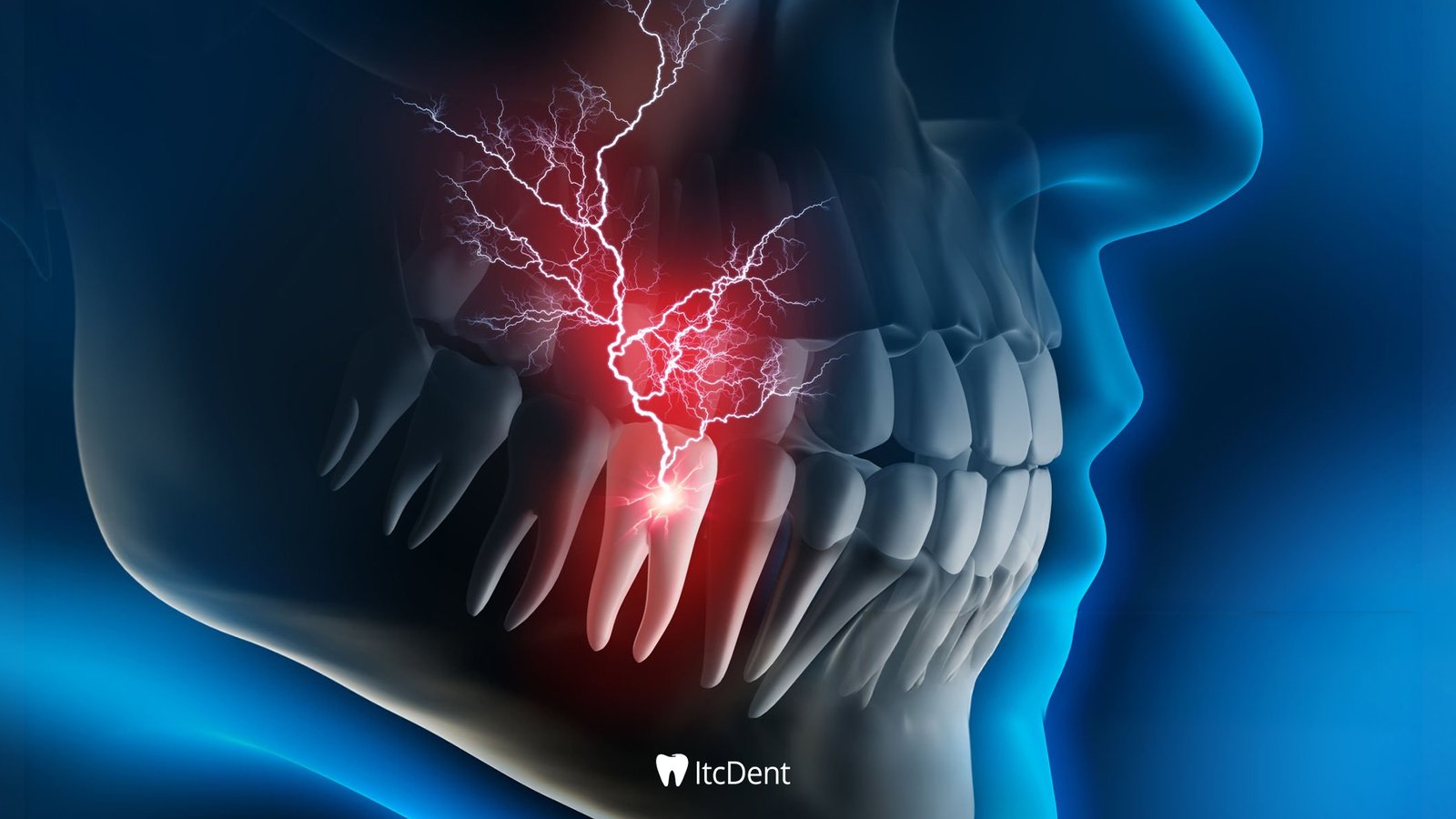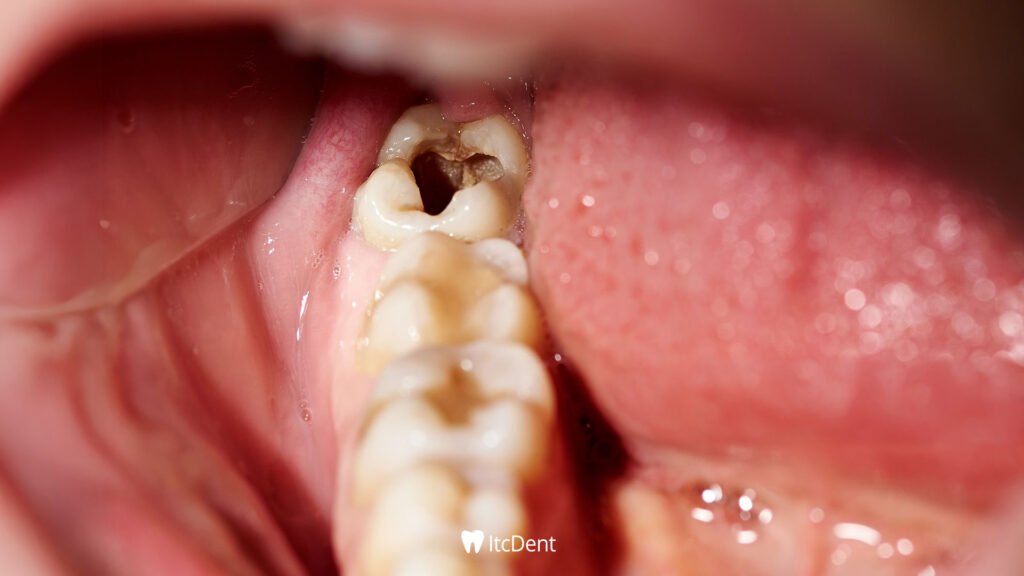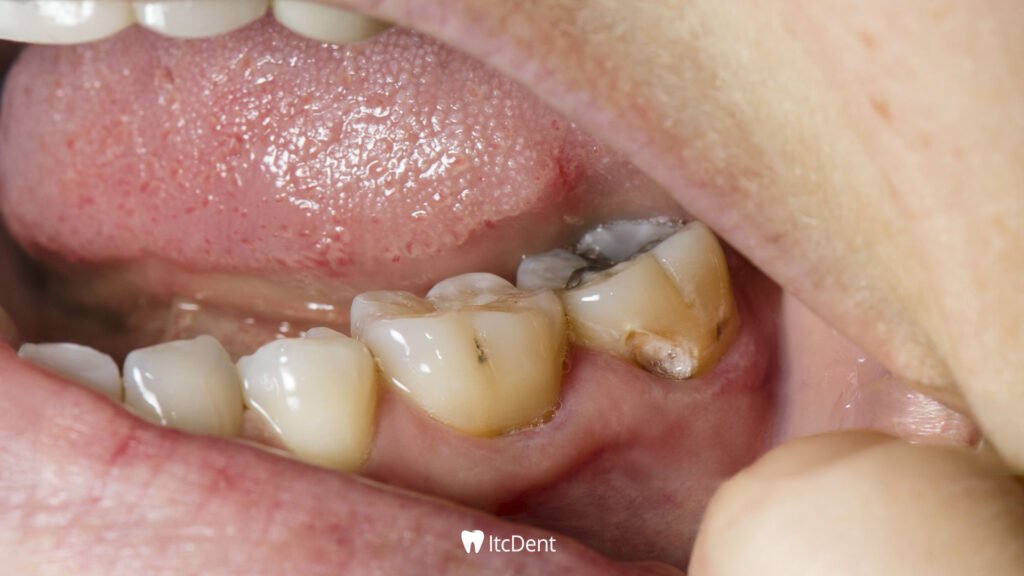
Decayed Toothache Treatment
Toothache is a problem most people experience at least once in their lives, significantly diminishing their quality of life. It interferes with the things you enjoy doing during the day, makes it difficult to focus on your work, and can even cause you to lose sleep at night. Toothaches caused by decay, in particular, are quite distressing with their distinctive aching pain. Sometimes they can be a sudden stabbing pain, and sometimes they can be a throbbing pain that lasts for hours, leaving you practically helpless.
A cavity begins with a seemingly innocent, small stain on the tooth’s surface. However, if left untreated, bacterial activity can progress to the deeper layers of the tooth. During this process, it reaches the enamel, then the dentin, and from there, it reaches the tooth’s nerves. This is precisely where the pain begins to intensify. Initially, sensitivity only triggered by cold or sweet foods can eventually escalate into excruciating pain.
Why Do Our Teeth Decay?
The primary cause of tooth decay is the production of acid by bacteria living in the mouth, which combines with food residue. The foods we consume throughout the day, especially sugary and starchy foods, leave residue on our teeth. When this residue isn’t cleaned regularly, it becomes a feast for bacteria. Over time, the acids produced by bacteria erode tooth enamel, leading to the onset of cavities.
Of course, it’s not just dietary habits that can accelerate tooth decay; neglected oral hygiene, differences in salivary structure, and genetic factors can also contribute. So, it’s not just about “eating too much sugar”; not brushing regularly, flossing, or skipping routine dental checkups also play a significant role. In short, tooth decay is a bit of a warning, telling us, “You haven’t been taking good care of yourself.”

Why Do Decayed Teeth Pain?
To understand the cause of toothache, it’s important to understand how the decay develops. Naturally occurring bacteria in the mouth feed on sugary and acidic foods, in particular, and convert these foods into acid. Over time, the resulting acids begin to erode tooth enamel, initially forming small holes on the surface.
In this initial stage, pain is usually not felt because the enamel acts as a protective layer away from the nerves. However, as the decay progresses and reaches the dentin layer, the situation changes; at this point, the tooth becomes sensitive to hot, cold, or sweet foods, and the person experiences their first warning signs. If the decay deepens and reaches the dental pulp, the pain becomes unbearable. This throbbing, sharp, and constant pain is sometimes so severe that it can wake a person in the middle of the night.
In short, although the decay progresses silently at first, it turns into an increasingly painful pain as it approaches the nerves, as if to say, “Notice me now.”
How to Relieve Toothache from a Decayed Tooth
First of all, it’s important to understand that home remedies only provide short-term relief. This means they don’t eliminate the decay that’s causing the pain; they only provide some relief. For a permanent solution, it’s essential to see a dentist. However, there are a few practical methods for those who want to reduce pain until they can see a doctor.
Gargle with Warm Salt Water
This is a method almost everyone knows and can easily implement. Add half a teaspoon of salt to a glass of warm water, stir, and gargle with this water. Salt water both slows the growth of bacteria and helps relieve pain caused by inflammation.
Cold Compress
Applying a cold compress to the outer side of the cheek, where the aching tooth is located, helps reduce pain by constricting the blood vessels. Applying ice directly to the skin is more comfortable by wrapping it in a thin cloth or towel.
Apply Clove Oil
Clove oil has been used for centuries as a natural remedy for toothaches. Its eugenol content is known for its mild numbing and antiseptic properties. A few drops of clove oil on a cotton ball can be gently applied to the aching tooth. However, caution is advised, as excessive use can irritate the gums.

The Natural Power of Garlic
Garlic, known for its antibacterial properties, is a natural remedy for toothaches. A crushed clove of garlic can be placed directly on the affected area. It both fights germs and partially relieves pain.
Herbal Remedies: Mint and Tea Bags
Mint leaves or mint tea bags can soothe toothaches thanks to their mild cooling and numbing effects. Brewed black tea bags are also preferred due to their anti-inflammatory properties.
Pain Relievers
If the pain is unbearable, simple painkillers available at pharmacies (such as paracetamol or ibuprofen) can provide temporary relief. However, it’s important to remember that these only alleviate the symptoms, and a visit to the dentist is essential for treating any cavities.

What Can We Do to Prevent Cavities?
Instead of looking for solutions after the pain begins, it’s much easier to take precautions before cavities develop. Here are some suggestions:
- Regular Brushing: Teeth should be brushed at least twice a day, especially before bed.
- Flossing: Removes food particles that accumulate in areas your toothbrush can’t reach.
- Reducing Sugary and Acidic Foods: These foods accelerate the development of cavities.
- Regular Dental Checkups: Checkups at least twice a year help detect cavities early.
- Fluoride Toothpaste: Strengthens tooth enamel and protects against cavities.

